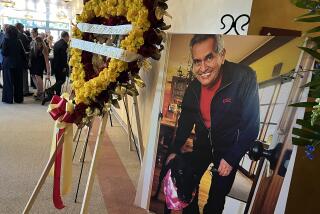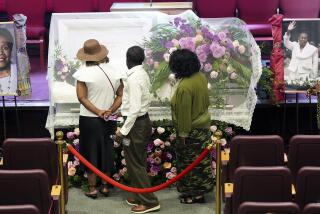PASSINGS: Bill Clements, Arthur Goldreich, John N. Doggett, Sergei Bagapsh, Thomas Graham Duffy
Bill Clements
First GOP Texas governor since Reconstruction
Bill Clements, 94, a two-term Texas governor who in 1979 became the first Republican elected governor in the state since Reconstruction, died Sunday at a Dallas-area hospital, Lt. Gov. David Dewhurst said. Clements had been in failing health for several months, his family said.
“As the father of the modern-day Texas Republican Party, Gov. Clements is responsible for the growth, success and election of Texas Republicans in every corner of our state,” Gov. Rick Perry said.
Clements served from 1979 to 1983 but lost his bid for reelection to Democrat Mark White. He defeated White in 1986 to earn his second term.
Clements’ second term was marred by his involvement in a pay-for-play football scandal at Southern Methodist University, which led the NCAA to suspend the football program for two years. Clements was chairman of the school’s governing board between his terms as governor and acknowledged participating in the decision to let the payments continue.
Clements was born in 1917 in Dallas. He turned down athletic scholarship offers from several colleges to work in south Texas oil fields while his father, a real estate man and farmer, was struggling during the Depression. Clements graduated from Southern Methodist in 1939 and eventually became a multimillionaire oilman.
After heading Richard Nixon’s 1972 presidential campaign in Texas, Clements was deputy secretary of defense from 1973 to 1977. He was elected governor in November 1978, defeating Democrat John Hill.
Arthur Goldreich
Anti-apartheid activist helped Nelson Mandela
Arthur Goldreich, 82, an anti-apartheid activist in South Africa who once helped Nelson Mandela hide out on a farm by posing as his employer, died Tuesday in Tel Aviv, the Nelson Mandela Foundation announced. No cause was given.
Goldreich and his family pretended to be the owners of a farm on the outskirts of Johannesburg that was the African National Congress’ underground headquarters in the 1960s. Neighbors saw Mandela, known on the farm as David Motsamayi, in blue workers’ overalls selling produce on the street.
Mandela later spoke of “numerous political discussions” with Goldreich and of recommending he be recruited into the ANC’s armed wing. In his autobiography, Mandela described Goldreich as having fought for Israel’s independence.
Mandela was already in prison in 1963 when the farm was raided. Goldreich was among those arrested, but he and three others escaped from a downtown Johannesburg police station. Benjamin Pogrund, a former South African journalist who met Goldreich in Israel, told the Associated Press that Goldreich escaped by promising to bribe a young policeman to open the cell door. Goldreich left South Africa disguised as a priest and eventually settled in Israel.
For years, Pogrund said, Goldreich regretted that the bribe hadn’t been paid. He paid the officer after apartheid ended, Pogrund said.
Goldreich, who was born in South Africa in 1929, also was an artist and a designer. He became an architect in Israel and taught at the prestigious Bezalel art and design academy.
John N. Doggett
Southland pastor was active in civil rights movement
The Rev. John N. Doggett, 93, a longtime United Methodist minister who was active in the civil rights movement and was pastor of two Southern California churches, died May 15 after a long illness at Parc Provence, an assisted living facility in Creve Coeur, Mo., his family said.
Doggett was pastor of Scott United Methodist Church in Pasadena from 1949 to ’53 and Hamilton United Methodist Church in Los Angeles from 1954 until moving to St. Louis in the mid-’60s. While pastor at Hamilton, Doggett also was treasurer of the Western Christian Leadership Conference and played a key role in two civil rights rallies in Los Angeles in 1961.
Doggett was with Union Memorial United Methodist Church in St. Louis from 1964 to ’77. He also was president of the St. Louis chapter of the National Assn. for the Advancement of Colored People from 1971 to ’81.
He was born April 3, 1918, in Philadelphia and earned degrees from Lincoln University in Pennsylvania and Union Theological Seminary in New York City.
Sergei Bagapsh
Leader of Abkhazia region of Georgia
Sergei Bagapsh, 62, the leader of Abkhazia, a separatist region of Georgia aligned with Russia, died Sunday in a Moscow hospital where he was being treated for lung cancer, spokesman Kristian Bzhaniya said.
Bagapsh, who was born March 4, 1949, had led Abkhazia since 2005.
Abkhazia had spun out of Georgia’s control in fighting in the early 1990s. But during the 2008 war between Russia and Georgia, Abkhaz forces with help from the Russian military pushed Georgian troops out of the last bit of territory they held in Abkhazia.
Moscow then recognized the independence of Abkhazia and South Ossetia, another separatist region and the focus of the brief war. Most nations consider both regions to be Georgian territory, however.
The next year, Bagapsh was reelected and vowed to maintain close ties with Russia, which has thousands of troops based in Abkhazia.
Thomas Graham Duffy
Former San Diego County judge
Thomas Graham Duffy, 83, a former San Diego Superior Court judge, died May 23 of cancer at his home in Jamul, an unincorporated community in San Diego County, his family said.
Duffy was appointed to the Superior Court by Gov. Jerry Brown in 1980. He had been an El Cajon Municipal Court judge since 1967 when he was the first San Diego County judicial appointment of Gov. Ronald Reagan. He retired as presiding judge in 1987.
Duffy was born July 18, 1927, in Racine, Wis., and moved with his parents to San Diego County in 1941. He attended Grossmont High School and joined the Navy in 1944, serving two years in the Pacific theater and China. Duffy earned a bachelor’s degree in political science from San Diego State in 1951 and a law degree from Hastings College of Law at UC San Francisco in 1954.
Before becoming a judge, Duffy worked in private practice and was city attorney of El Cajon.
Los Angeles Times staff and wire reports
More to Read
Start your day right
Sign up for Essential California for the L.A. Times biggest news, features and recommendations in your inbox six days a week.
You may occasionally receive promotional content from the Los Angeles Times.




















































